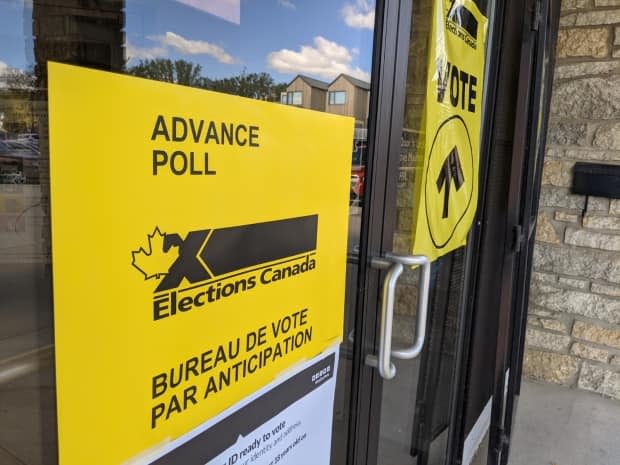Sask. advance poll turnout up 20% from 2019: Elections Canada

Nearly 31,000 more people in Saskatchewan voted in advance polls for the federal election this year than in 2019, according to data estimates from Elections Canada.
Advance polls for the 2021 federal election opened across Canada on Friday, running through the weekend and closing on Monday. Over the four days, more than 182,000 people in Saskatchewan showed up to cast their ballots — a 20 per cent increase from 2019, Elections Canada says.
While some political leaders have called this an unnecessary and unwanted election, Howard Leeson, a political science professor emeritus from the University of Regina, says the advance turnout numbers contradict some of those claims.
"The increase in the advance polls … indicates that people are just as interested in this election as others," he said.
Leeson said there isn't much research into poll turnout, and it's tough to predict how many people will come out for election day on Sept. 20 — especially this year.
"I think we're in a special circumstance because of the COVID pandemic and some people, at least, were probably trying to avoid voting at polling stations that might be crowded," he said.
"If that's the case … then we might actually see an average or below average turnout — but my sense, though, is that that's not the case."
Every riding in the province had a larger advance poll turnout than in 2019, with the exception of Saskatoon West, which had nearly 1,100 fewer advance voters than during the last election.
Meanwhile, the ridings of Cypress Hills-Grasslands, Moose Jaw-Lake Centre-Lanigan, Regina-Qu'Appelle and Yorkton-Melville all had a more than 30 per cent increase in turnout.
Voters showed an appetite for advance polls nationally, as well. Turnout increased by about 18.5 per cent over the 2019 numbers across Canada.
A potential change election
CBC's poll tracker suggests that the Liberal Party of Canada currently holds a narrow lead in support over the Conservative Party of Canada.
This could be a "change election," Leeson speculates, which historically bring out more voters.
"As political scientists, we always look for change elections," where voters "want to turn the government out, for example," he said.
"Change elections generally bring a larger turnout."
Leeson believes some people in Saskatchewan aren't pleased with the Liberals' time in office, but also may not be fond of how the Conservative leadership has changed the party's focus.
"I think that after 2019 there was some dissatisfaction with the Conservative Party in the failure to replace the Liberals," he said.
"And now the leader of the Conservative Party seems to be leaning more heavily toward the centre on some issues, like the carbon tax, like lifestyle and other issues."
He believes that the Conservative electorate may be looking elsewhere this year — perhaps to the People's Party of Canada or the Maverick Party.
In 2019, the Conservative Party took all 14 of Saskatchewan's seats. Political watchers have said that this year could be different in some of the competitive ridings, including Regina-Wascana, Regina-Lewvan, Saskatoon West and Desnethé-Missinippi-Churchill River.
However, Leeson said the reduced advance poll turnout in Saskatoon West may indicate it's not as competitive as some have predicted.

